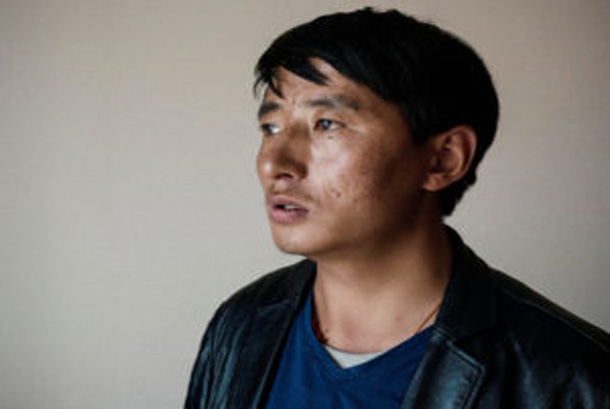 Dharamshala — A year after his imprisonment, the fate of Tashi Wangchuk, an entrepreneur and language advocate, remains unknown, as international human rights groups are calling on China to drop charges against him, after he was indicted by court officials this month for “inciting separatism.”
Dharamshala — A year after his imprisonment, the fate of Tashi Wangchuk, an entrepreneur and language advocate, remains unknown, as international human rights groups are calling on China to drop charges against him, after he was indicted by court officials this month for “inciting separatism.”
The Tibetan advocate, Tashi Wangchuk, was detained nearly one year ago after speaking to The New York Times for a documentary video and two articles on Tibetan education and culture.
Human Rights Watch and Amnesty International have both issued statements in recent days asking for China to release Tashi, 31.
Tashi has claimed not guilty, and in interviews in 2015 with The Times, Tashi said he did not support independence for Tibet.
Lawyers have said the police focused their investigation of Tashi on the nine-minute Times video produced by Jonah M. Kessel, which showed Tashi’s attempts to file a lawsuit against local officials to compel them to expand Tibetan language education. Tashi had also written about the language issue on his blog.
Defendants who go on trial in China are almost always convicted. In political cases like that of Mr. Tashi, orders are sent from senior officials to the court. If convicted, Mr. Tashi could be sentenced to up to 15 years in prison.
Tashi’s case has attracted international attention, as many groups have called for his release.
Amnesty International said in a statement Wednesday that it was calling on the public to ask specific officials in China to free Tashi, calling him a “prisoner of conscience, detained solely for exercising his right to freedom of expression.”
Human Rights Watch’s China Director, Sophie Richardson said, “Tashi Wangchuk has joined the ranks of those prosecuted in China by simply calling for rights to be respected and the law to be upheld. Cultural rights, which include the right to use one’s own language, are protected under both the Chinese Constitution and international human rights law.”
Activist group Students for a Free Tibet (SFT), in January began a petition campaign amassing signatures from the pubic to be sent to consulates of various countries in Beijing to attract support and action for the release of Tashi.
SFT National Director Tenzin Tselha said that Tashi’s case is “an example of the severity of the persecution Tibetans face for simply calling for their rights that are perceived as a threat by the Chinese government despite the fact that they are protected by the international human rights laws and under the Chinese constitution.”
Tashi traveled to Beijing in 2015 to look for lawyers to help him file his lawsuit and to try to get China Central Television, the state network, and foreign journalists to document his efforts and the lack of robust Tibetan-language education in public schools in Tibetan regions.
Tashi said he wanted to use Chinese laws to expand language education, and he praised President Xi Jinping for having “promoted a democratic and law-abiding country these last few years.”
Tashi was detained by Yushu police on January 27, 2016, two months after the publication of the video and first article. Prosecutors sent the case to the court in September to have the court indict Tashi and schedule a trial, but then took the case back in December for further investigation, a move that was “very rare,” Mr. Lin said. Prosecutors resubmitted the case in early January.
Reports indicate that Tashi is expected to face trial soon and if convicted, he could face 15 years in jail.
Tibet was invaded by Communist China in 1949. Since that time, over 1.2 million out of 6 million Tibetans have been killed, over 6000 monasteries have been destroyed and acts of murder, rape, arbitrary imprisonment, torture and cruel, inhuman and degrading treatment were inflicted on the Tibetans inside Tibet. Beijing continues to call this a "peaceful liberation".


![Tibet has a rich history as a sovereign nation until the 1950s when it was invaded by China. [Photo: File]](/images/stories/Pics-2024/March/Tibet-Nation-1940s.jpg#joomlaImage://local-images/stories/Pics-2024/March/Tibet-Nation-1940s.jpg?width=1489&height=878)















